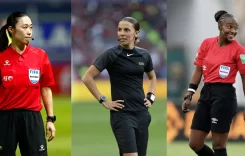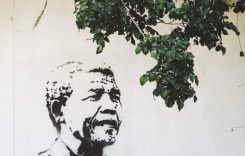Legislative elections take place this Monday in Israel. Voters must renew their parliaments and try to end a political crisis.
The moment of truth rings this Monday, March 2 in Israel with the third legislative elections in less than a year, which could end the country’s most important political crisis and seal the fate of Prime Minister Benjamin Netanyahu , accused of corruption.
After elections in April and September 2019 that failed to decide between the Likud (right) of Benyamin Netanyahu and the centrist formation Kahol Lavan (“Bleu-Banc”) of Benny Gantz, the citizens of the Hebrew State are charged to complete this political triathlon with today’s vote.
Some 6.4 million voters have been invited to the poll, which started at 7 a.m. local time (5 a.m. GMT) and is scheduled to run until 10 p.m. (8 p.m. GMT). Then follow surveys at the exit of the ballot boxes and preliminary results.
Netanyahu’s indictment
One thing has changed since the last election: the indictment of Benjamin Netanyahu , who became the first head of government in history in Israel to be indicted in November, and moreover for corruption, embezzlement and breach of trust .
In one of the files, the courts suspect him of having granted government favors which could have brought in millions of dollars to the boss of the telecom company Bezeq, in exchange for favorable media coverage by one of the group’s media.
The indictment of Netanyahu, who is playing his political future two weeks before the start of his trial on March 17, has not caused his support within Likud to falter, according to the latest polls. They anticipate a new close fight with Mr. Gantz, who could be played within one or two seats.
A polarized election
According to the latest barometers, neither the Likoud nor Bleu-Blanc can hope for more than thirty seats on the 120 of the Parliament, hence the importance of the results of their allies and non-aligned formations for this poll, whose big unknown remains the participation rate.
The Prime Minister of Israel counts on the support of the ultraorthodox Jewish formations of Shass, coopting a significant part of the Sephardic voices (Eastern Jews), of the unified Judaism of the Torah, which is mainly addressed to the Ashkenazi Orthodox (from Europe of the East), and from the Yamina list (radical right) of the current Minister of Defense Naftali Bennett.
For its part, Bleu-Blanc is counting on the support of the left parties , united in a single list and could benefit from ad hoc support from the “United List” of Israeli Arab parties.
The latter had caused surprise in September by climbing the third step of the podium and would like to go even further. The “United List” is trying to reap the fruits of frustration among the Israeli Arab minority (about 20% of the population) faced with the American plan for a settlement of the Israeli-Palestinian conflict, a project applauded by Israel and rejected by the Palestinians.
In this polarized context, the Israel Beitenou formation slides, aligned on neither of the two large blocks. Its leader Avigdor Lieberman, a secular nationalist hostile to the Arab and Orthodox Jewish parties, could tip the scales in favor of one or the other.










